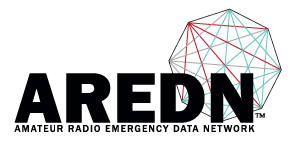Hello,
I am connected to the SoCal mesh area. I built a mumble chat / voice server on a Raspberry PI Zero which is connected both to the MESH and to the external Internet. This field-deployable server requires only a 5V USB battery power supply and can connect to nodes via WiFI or a LAN cable.
The internal MESH address of my Mumble server is:
km6zpo-mumble-server.local.mesh
If you cannot reach the server via the MESH, the external address is:
km6zpo.ddns.net
PORT 64738
Password: password
Your username can be anything (i.e. your call sign - first name)
Client applications for Desktop can be downloaded (free) here:
https://www.mumble.com/
On iOS, I recommend Mumblefy:
http://mumblefy.com/
Or, also for iOS: "Mumble"
https://apps.apple.com/us/app/mumble/id443472808
For Android, the Plumble app works well (be sure to mute yourself after joining the server, otherwise we'll hear everything!)
https://play.google.com/store/apps/details?id=com.morlunk.mumbleclient&hl=en_US&gl=US
Please disconnect after testing. Thank you!
Q: What's the point of having a voice / chat server?
A: I can think of a few scenarios. For example, if as a HAM operator I want to be able to talk to non-HAMs using the same equipment I use to talk to HAMs.
Q: Why not use Zello?
A: Zello is great, but requires Internet or cellular service to operate. If that service goes down during a major power outage, or if that service is otherwise unavailable, then Zello doesn't work. Mumble is a self-hosted solution not dependent upon 3rd parties.
Q: Why not use MeshChat?
A: MeshChat works fine, but I'm concerned that MeshChat, if used in the standard zone "MeshChat", is going to be flooded with traffic. It is also limited to chat only. Mumble can do voice.
Q: Why not use MatterMost?
A: MatterMost is a full-featured solution that is better than Mumble in a lot of ways. However, it requires a more powerful server. I'm able to run Mumble on a Raspberry Pi Zero with only 512MB of RAM. Mattermost requires at least 2GB of RAM. So to run a Mattermost server I would have to get, at a minimum, a Raspbery PI 4. That increases the cost from about $30 to $100.
Q: Why not use VOIP phones?
A: This wouldn't be a replacement for VOIP phones. VOIP phones are great for one-one-one conversations. But they require that both sides have the right equipment, technical know how to set them up, and knowledge of IP dialing. If this is all setup prior to an emergency, great. One drawback of VOIP systems is that you cannot (easily) have group conversations. Each solution has its place in the toolbox. I would still run VOIP phones.
Q: Is this "legal" on the MESH? It requires a secure certificate.
A: I'm not gonna get into that conversation. I will just say that in an emergency, I'm not going to worry about the FCC.
Q: I logged in, but nobody is there.
A: I'm not monitoring 100% of the time. Send an email to mark@km6zpo.com to let me know when you'll be there if I'm not there.
Q: Can I connect with multiple devices at the same time?
A: Yes, just make up a different username for each device. (i.e. KM6ZPO-Mark-MAC and KM6ZPO-Mark-Iphone). That's a great way to test the server if I'm not around!
Q: I want to try the Mumble Server. Where can I find it?
https://www.mumble.info/downloads/
You are here
Seeking Mumble Server Testers
Tue, 08/31/2021 - 11:59
#1
Seeking Mumble Server Testers
Theme by Danetsoft and Danang Probo Sayekti inspired by Maksimer


I forgot to ask Chuck if he was coming in over the MESH or via the WAN side.
Mark:
Great audio on both.
It seemed to me that, after several minutes, there was latency using the internet.
Although my laptop was connectred via Wi-Fi to my AREDN-Services node.
I shut down my local RF link, enabled my tunnel to w6bi, then connected.
Same great audio and low latency. Laptop still connected via Wi-Fi to my AREDN-Services node.
:-)
Chuck
Q: Why not use MeshChat?
A: MeshChat works fine, but I'm concerned that MeshChat, if used in the standard zone "MeshChat", is going to be flooded with traffic.
(MeshChat has unlimited 'Channels'.)
It is also limited to chat only.
(MeshChat does file uploading and downloading.)
Mumble can do voice.
If the AREDN user is active in emergency communication and/or disaster/community/event support,
for an 'after action report',
a date and time stamped text representation of
who did what , with which, and to whom,
might be better than trying to remember what was said on a voice net (Mumble, FM, Fusion, D-Star, DMR, ...)
several days after the event.
:-|
Chuck
Thanks everyone!
---mark